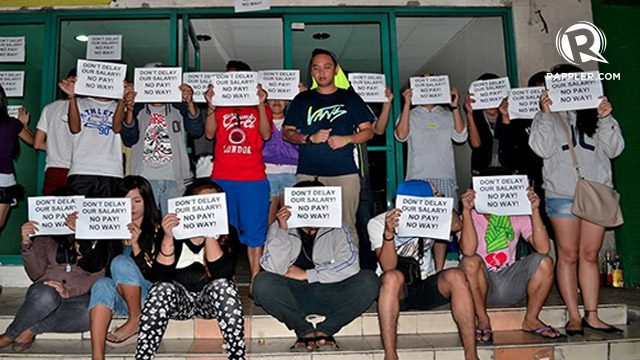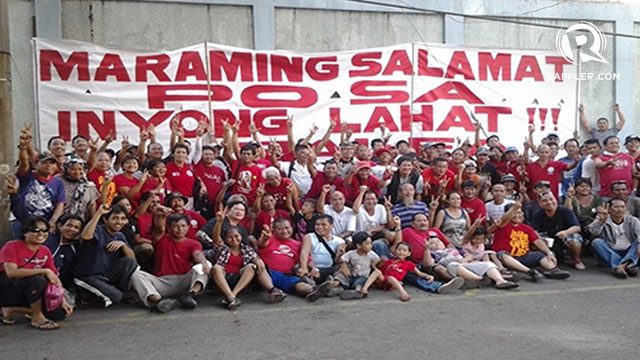SUMMARY
This is AI generated summarization, which may have errors. For context, always refer to the full article.

Unions under attack
On the other hand, the Digitel Employees Union (DEU) struggle continues, with the NLRC 2nd Division ruling last month against the union, effectively sanctioning the way in which DIGITEL let go of all its workers to replace them with contractuals.
Furthermore, at Galeo Equipment and Mining Company, a contractor at the Carmen Copper Corporation’s mine in Toledo City, a Temporary Restraining Order was raised effectively disenfranchising half of the more than 500 workers from voting in the recent certificate elections.
The dispute arose while the elections were in process, based on claims by the Asiapro manpower cooperative that the Galeo workers are their members and thus exempt from unionization.
However the Department of Labor and Employment (DOLE) had already ruled that their union elections can continue despite Asiapro’s opposition.
BPO illegal closures
A troubling spate of illegal BPO closures stands as a warning to a current generation of young workers, ringing warning bells that should raise the hackles of young BPO contractuals.
First, Direct Access folded up last July 2012, leaving over 600 employees in severe financial duress, including extremes that resulted in the malnourishment and hospitalization of one former employee. In response, Direct Access workers formed the workers association called the Inter Call Center Association for Workers (ICCAW).
ICCAW fought to regain unpaid wages, commissions, overtime pay and separation benefits, and eventually won, all the while pushing for reforms in the so-called “BPO Sweatshops”.
Then, on the heels of this closure, the workers of the bankrupt Cordia-Philippines discovered that their former employer had P1.6 million in assets left in the bank and was operating another company in Mandaue City called Geils Communications. This prompted the former workers to file a case with the NLRB.

No compensation
Based on these illegal closures, ICCAW pushed for DOLE to compel call center companies to post cash bonds equivalent to the salaries and benefits of its total workforce for a one-month period. Yet despite the simplicity of this proposal, DOLE has yet to implement it.
Then, in December 2013, the Cebu-based Leadamorphosis folded up, leaving over 100 workers without their last months pay. Leadamorphosis handles voice and non-voice marketing for US brands, including General Electric.
The American CEO, Paul Flannery, flew the coop and did not show when DOLE attempted to arrange a teleconference with the disenfranchised workers. The workers, several of whom are ICCAW members, received no compensation, and held vigils in front of the shuttered offices so that the owners could not remove the equipment remaining inside.
BPO self-regulation
According to Department of Labor and Employment (DOLE) Secretary Rosalinda Dimapilis-Baldoz, “the Philippines is moving inexorably towards the development of a culture of voluntary compliance with labor standards and occupational health and safety that will raise the bar of competitiveness of the Philippine economy.”
Last March, President Aquino approved the Act Strengthening Tripartism which will supposedly improve the resolution of labor disputes though negotiations that pre-empt lawsuits.
DOLE thereafter proclaimed success, stating that “the voluntary codes of good practices adopted by various regional industries have minimized government intervention and fostered harmonious labor-management relations in the affairs of private sector businesses.”

Worker organizations
Is self-regulation a realistic idea towards managing BPO labor rights? No!
Tripartism can scarcely function as promised if the employer goes missing, as did the American CEO Flannery. Leadamorphosis, part of a spate of recent illegal closures in the BPO sector, has proven this idea to be an incomplete solution.
Contractualization attacks on the industrial sector also prove that all too often, industry prefers End-of-Contract (ENDO) employees to unionized workers.
The young BPO workers must awaken to the reality that their rights will not be protected if they do not organize.
ICCAW presents one option towards organizing that accommodates the precarious nature of ENDO labor. While advances must be made, ultimately resulting in the unionization of the BPO sector, for the time being, workers must rely upon associations to educate themselves of their rights, to seek redress for their grievances, and orient themselves politically.
It also presents the option of international solidarity, such as joint actions and solidarity letters to the American vendors who manufacture and peddle the products serviced by Filipino call centers.
As Nagkaisa! rallies this May day at Mendiola, we must be reminded of the labor movement that exists, both in the Philippines and internationally, and work to direct this energy in the workplace as well as politically towards the emancipation of labor. – Rappler.com
Daniel Rudin is an independent documentary filmmaker and video artist. He worked with Rappler as a Luce Scholar.
Add a comment
How does this make you feel?
There are no comments yet. Add your comment to start the conversation.